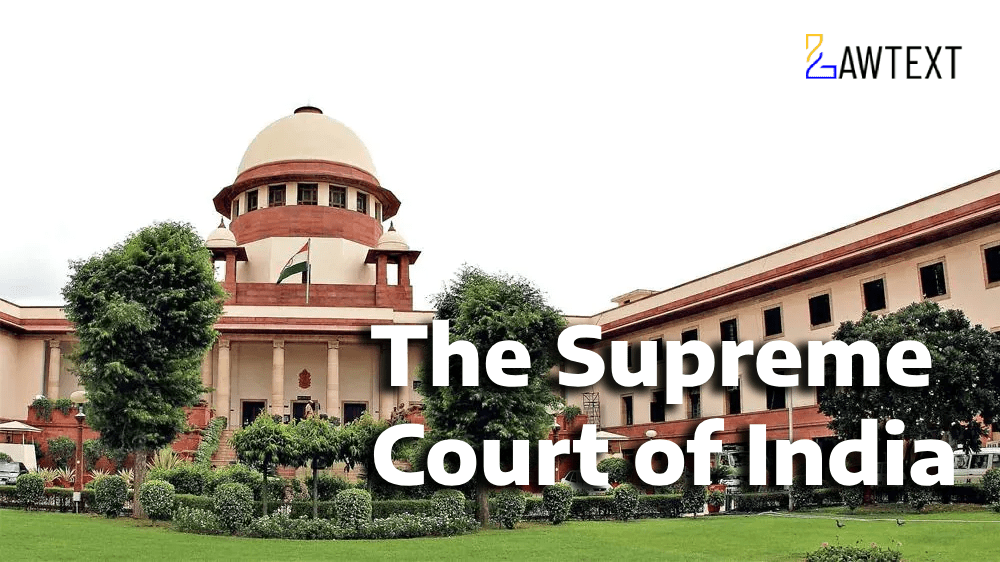

The Supreme Court allowed the appeals, setting aside the Division Bench’s judgment and restoring the Single Judge’s decision. The Court held that: The State had not taken actual physical possession of the land before the Repeal Act, 1999 came into force. The mandatory procedures under Sections 10(5) and 10(6) of the ULC Act were not followed, and the panchnama was not genuine. The proceedings under the ULC Act stood abated under Section 3 of the Repeal Act, 1999, as possession was not taken.
Actual Physical Possession: The Court emphasized that de facto possession is required under the ULC Act, and mere paper possession is insufficient. The State must prove actual physical possession through cogent evidence. (Para 29, 30, 41)
Mandatory Notice: The issuance and service of notice under Section 10(5) is mandatory, and the 30-day period must be strictly complied with before taking possession under Section 10(6). (Para 22, 23, 37)
Panchnama: A panchnama must be genuine, and the State must provide evidence, such as affidavits from panchas, to prove possession. The absence of the landowner’s signature or site map raises doubts about its authenticity. (Para 35, 45)
Repeal Act, 1999: If possession is not taken before the Repeal Act, 1999, the proceedings abate, and the land must be restored to the owner. (Para 20, 42)
The Supreme Court’s decision reinforces the principle that actual physical possession is a prerequisite for the State to claim land under the ULC Act, and any failure to comply with the mandatory procedures results in the abatement of proceedings under the Repeal Act, 1999. The judgment serves as a reminder to State authorities to strictly adhere to statutory procedures in land acquisition cases.
Urban Land (Ceiling and Regulation) Act, 1976 (ULC Act) – Sections 10(1), 10(3), 10(5), 10(6), and Section 20(1)(a).
Urban Land (Ceiling and Regulation) Repeal Act, 1999 (Repeal Act) – Sections 3 and 4.
Constitution of India (COI) – Article 226.
Actual Physical Possession – De facto possession required under ULC Act.
Deemed Vesting – Under Section 10(3) of ULC Act.
Repeal Act, 1999 – Abatement of proceedings if possession not taken before repeal.
Panchnama – Evidence of possession, must be genuine and properly executed.
Mandatory Notice – Section 10(5) notice must be served before Section 10(6) action.
Nature of the Litigation: The appellant, M/S A.P. Electrical Equipment Corporation (now ECE Industries Limited), challenged the acquisition of its land under the ULC Act, 1976, arguing that the State had not taken actual physical possession before the Repeal Act, 1999 came into force.
Remedy Sought: The appellant sought quashing of the acquisition proceedings, claiming that the State had only taken symbolic possession through a fabricated panchnama.
Reason for Filing: The appellant contended that the State failed to comply with the mandatory procedures under Sections 10(5) and 10(6) of the ULC Act, and that the land was still in its possession.
Previous Decisions: The Single Judge of the High Court ruled in favor of the appellant, holding that the State had not taken actual possession. However, the Division Bench reversed this decision, leading to the appeal before the Supreme Court.
Whether the State had taken actual physical possession of the land before the Repeal Act, 1999 came into force?
Whether the mandatory procedures under Sections 10(5) and 10(6) of the ULC Act were followed?
Whether the panchnama relied upon by the State was genuine and sufficient to prove possession?
Whether the Repeal Act, 1999 abated the proceedings due to the State’s failure to take possession?
Appellant:
a. The State failed to take actual physical possession before the Repeal Act, 1999.
b. The panchnama was fabricated, and the mandatory 30-day notice under Section 10(5) was not complied with.
c. The factory was still operational, and residential buildings were constructed on the land, proving possession was not taken.
d. The State’s claim of possession was based on a symbolic panchnama, which was not supported by evidence.
Respondent (State):
a. Possession was taken through a valid panchnama on 08.02.2008, before the Repeal Act, 1999.
b. The notice under Section 10(5) was affixed on the factory gate, and the 30-day period was complied with.
c. The discrepancies in the dates on the Section 10(6) notice were clerical errors and did not invalidate the possession.
De facto: In fact or in reality.
De jure: By law or by right.
Citation: 2025 LawText (SC) (2) 272
Case Number: CIVIL APPEAL NOS 4526-4527 OF 2024
Date of Decision: 2025-02-27
Case Title: M/S A.P. ELECTRICAL EQUIPMENT CORPORATION VERSUS THE TAHSILDAR & ORS. ETC.
Before Judge: (J. B. Pardiwala J. , R. Mahadevan J.)
Appellant: M/S A.P. ELECTRICAL EQUIPMENT CORPORATION
Respondent: THE TAHSILDAR & ORS. ETC.